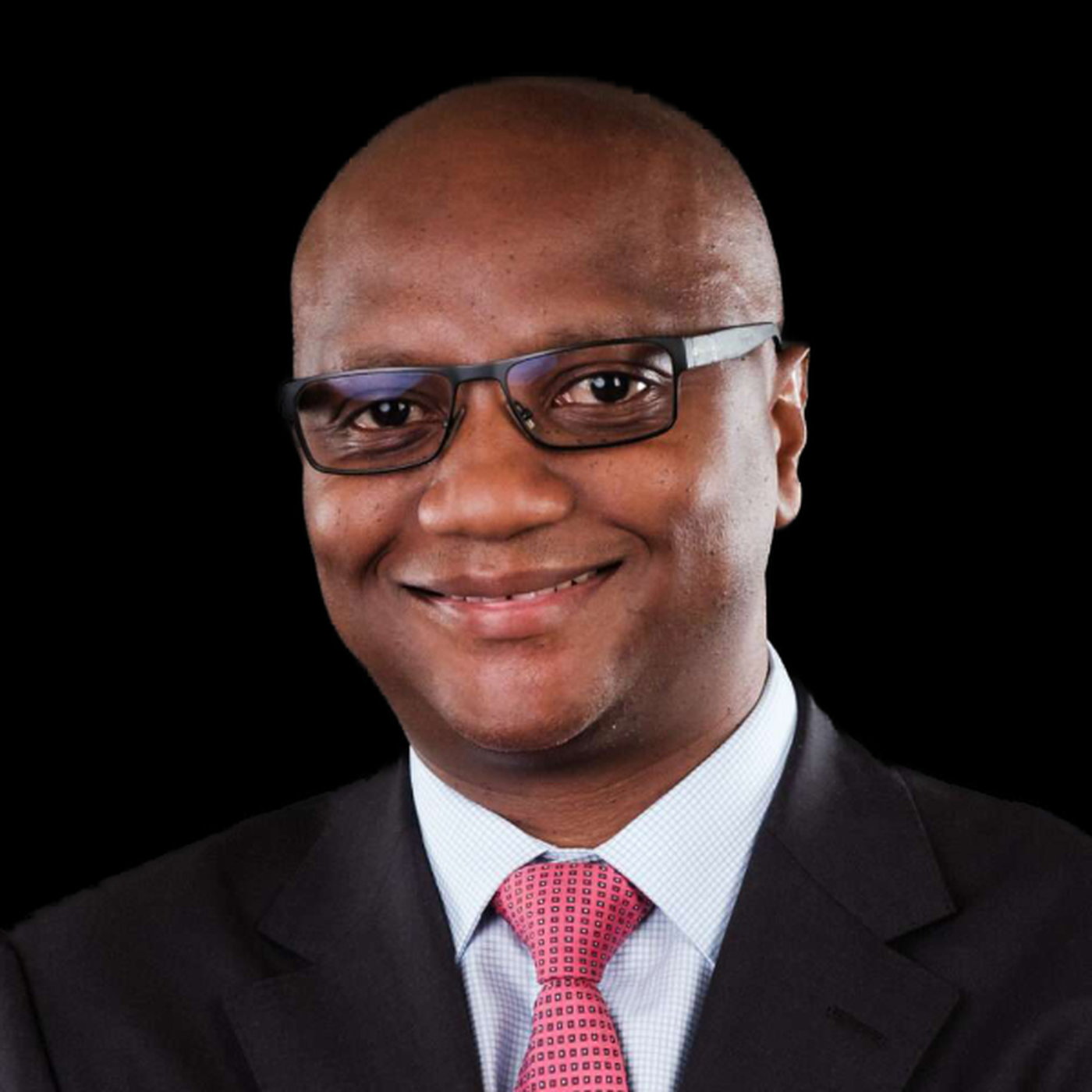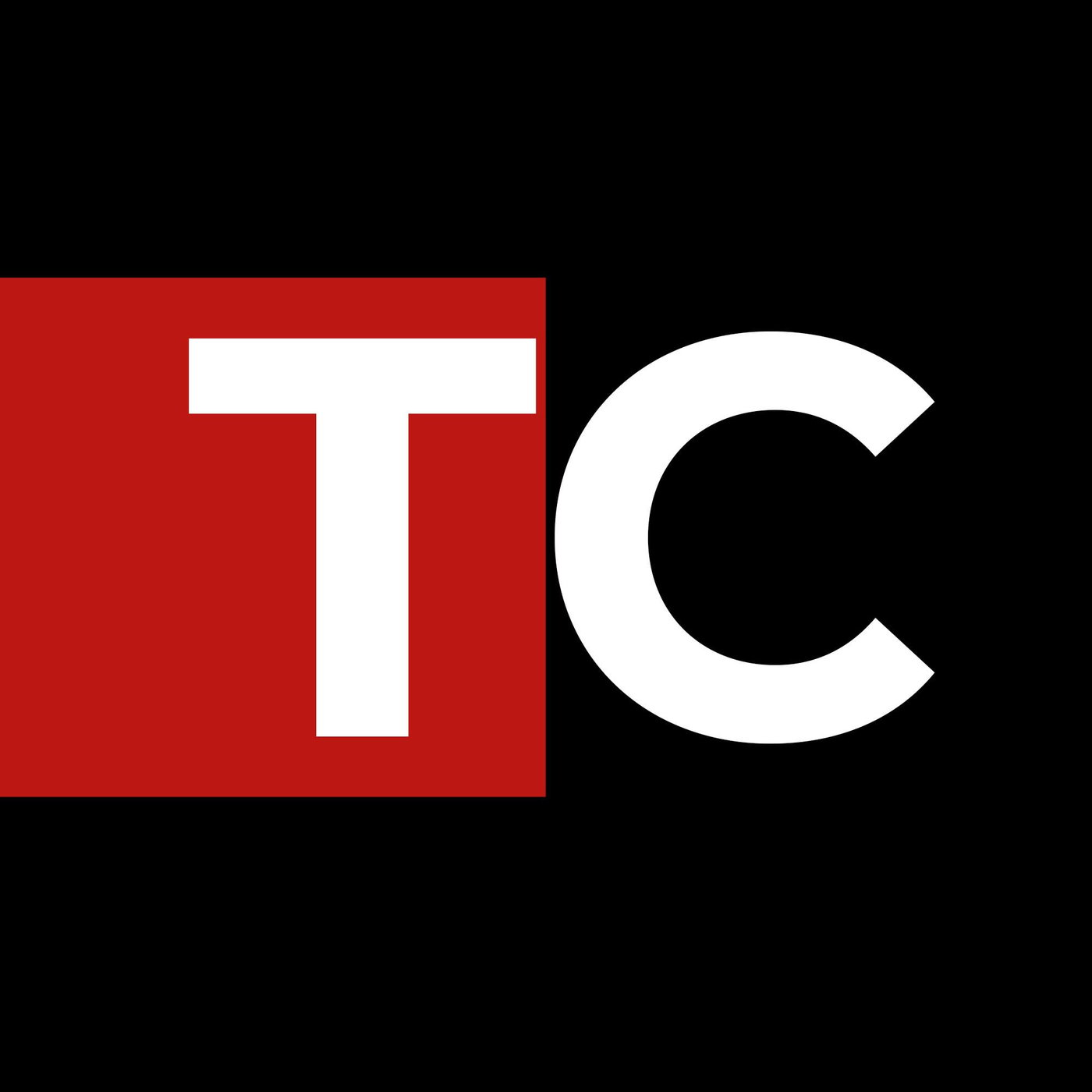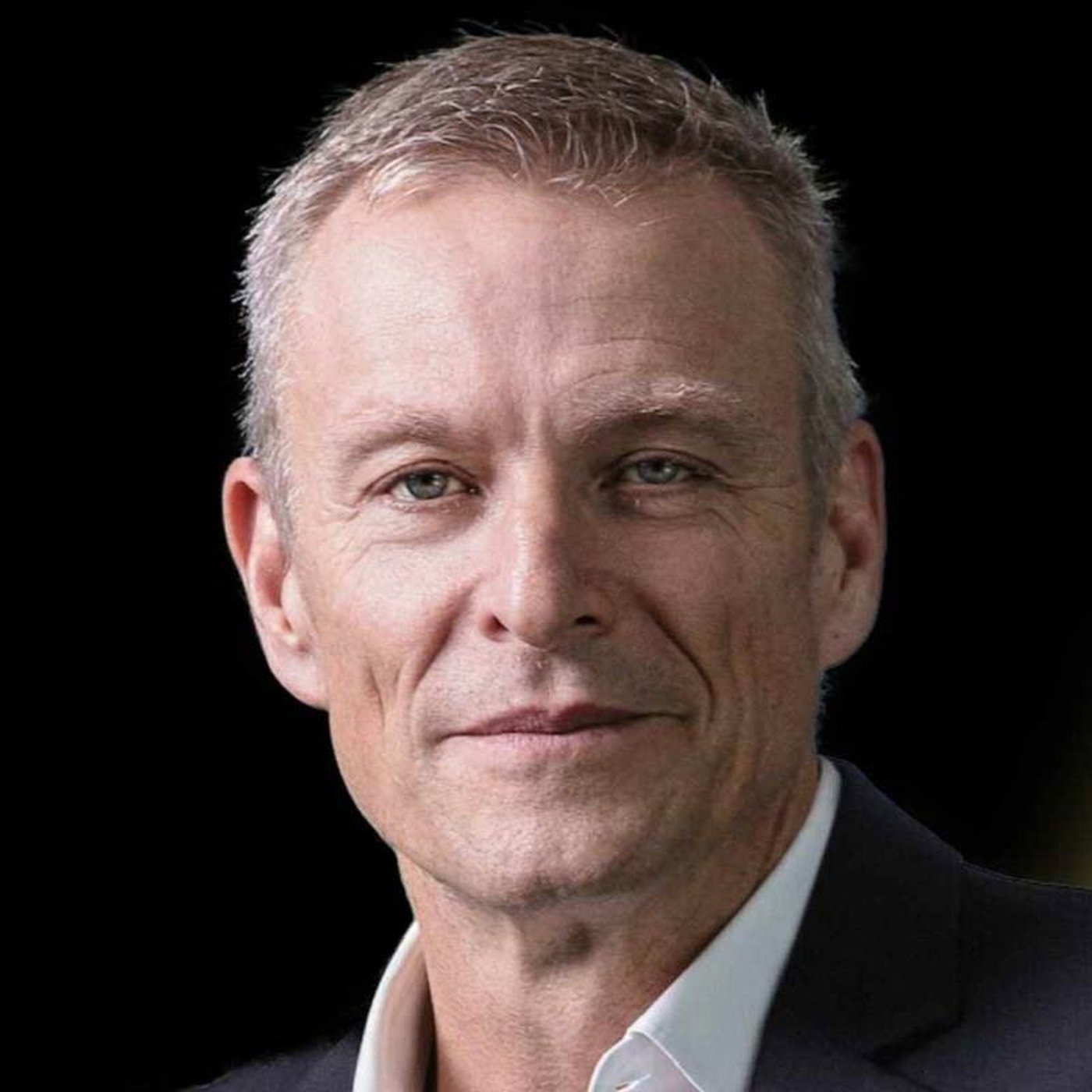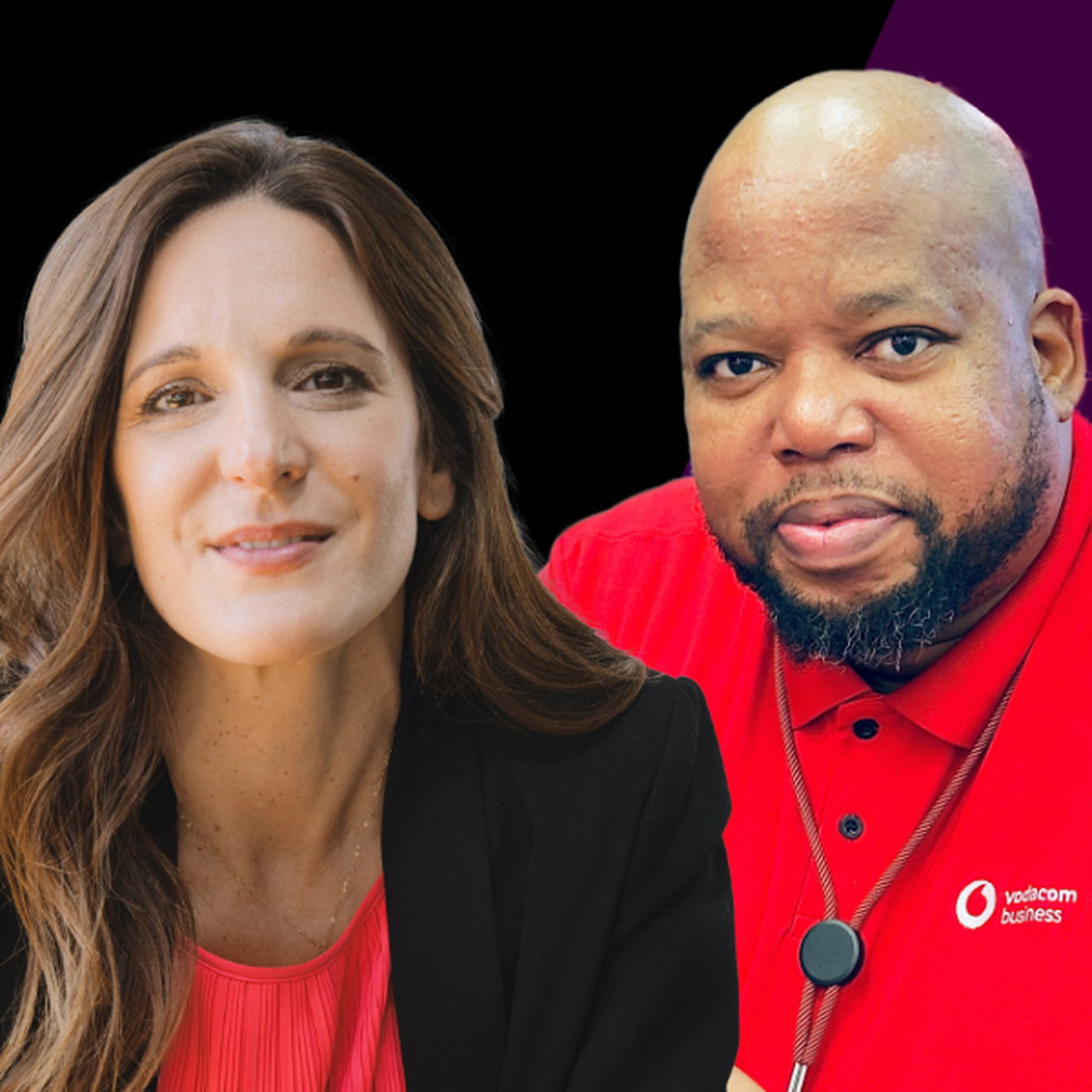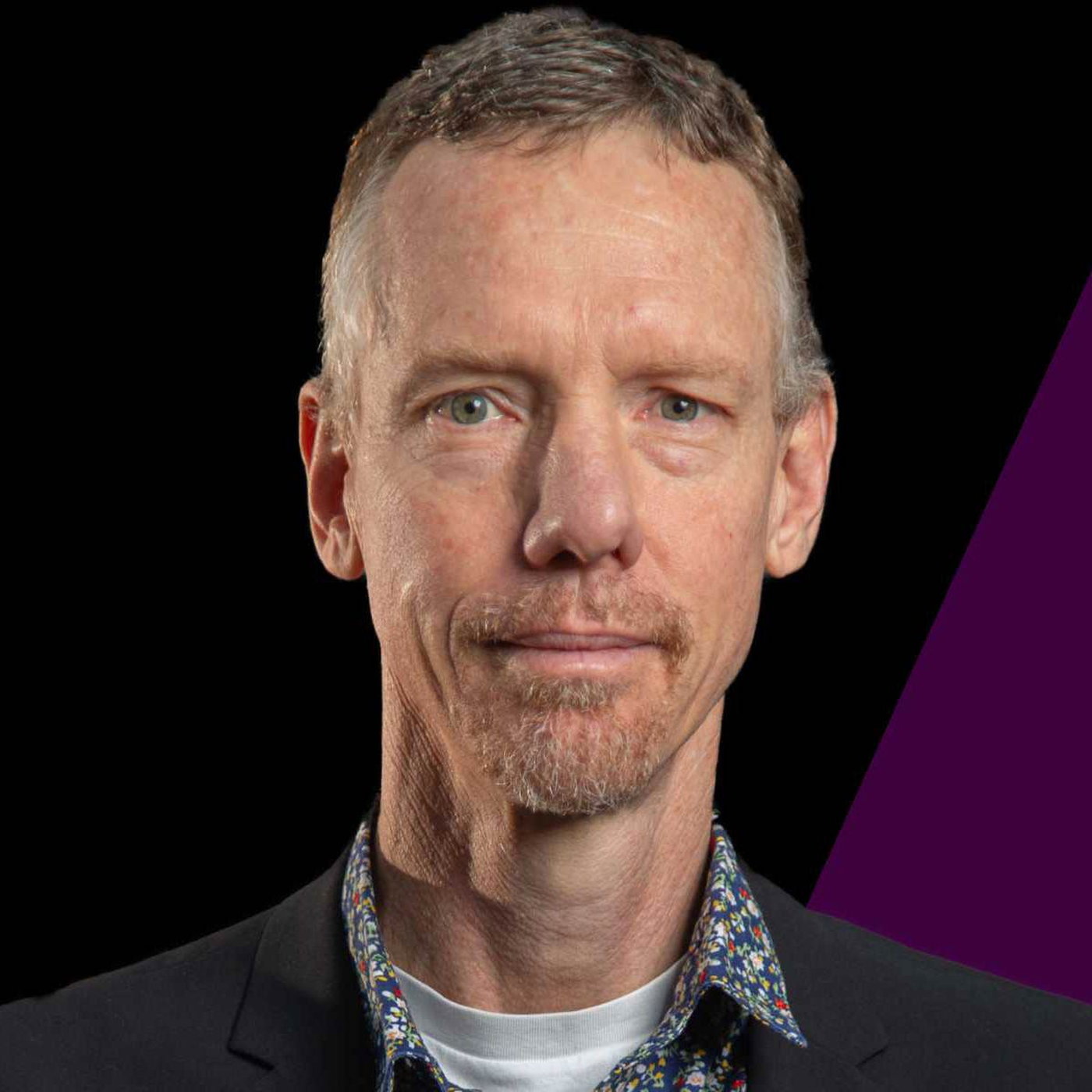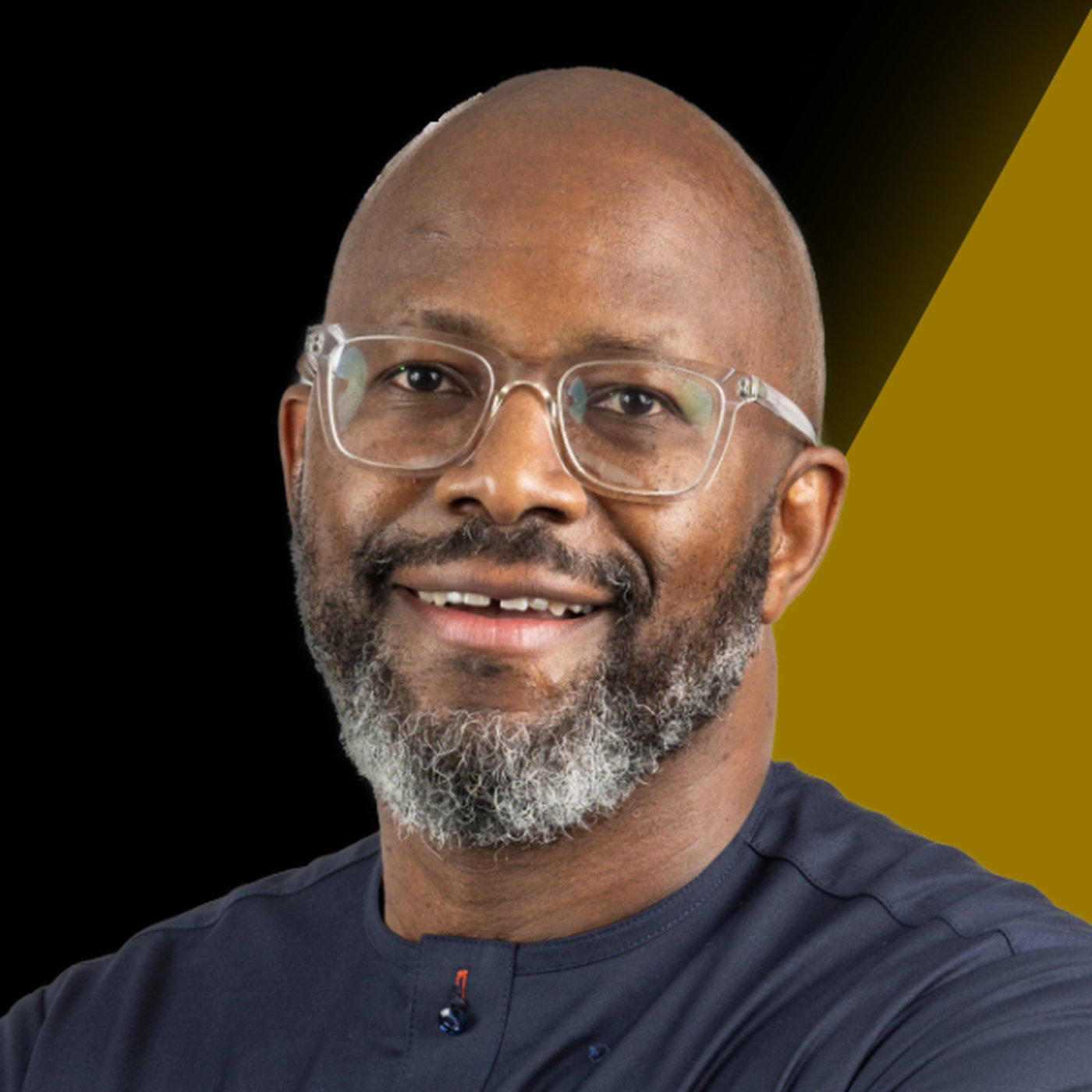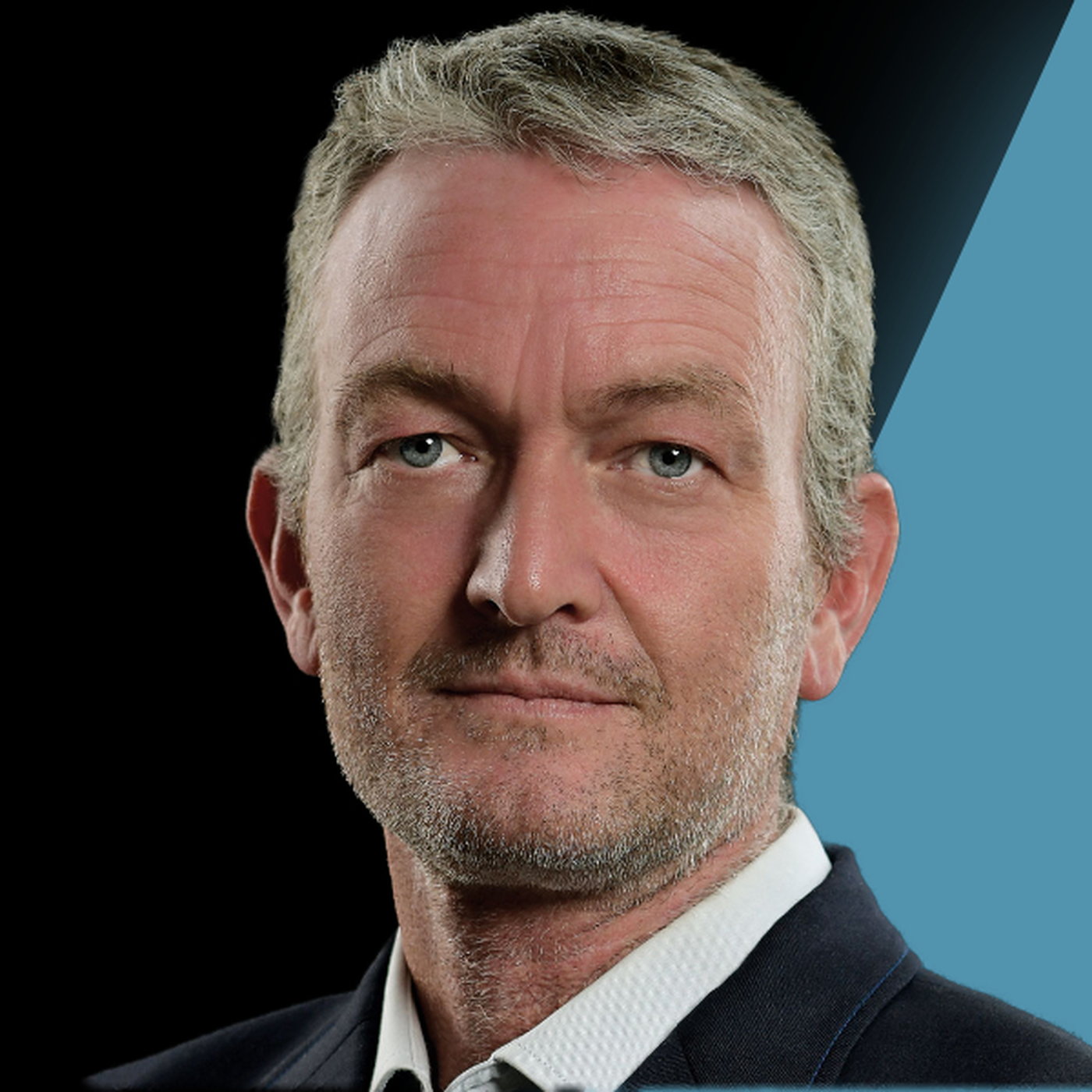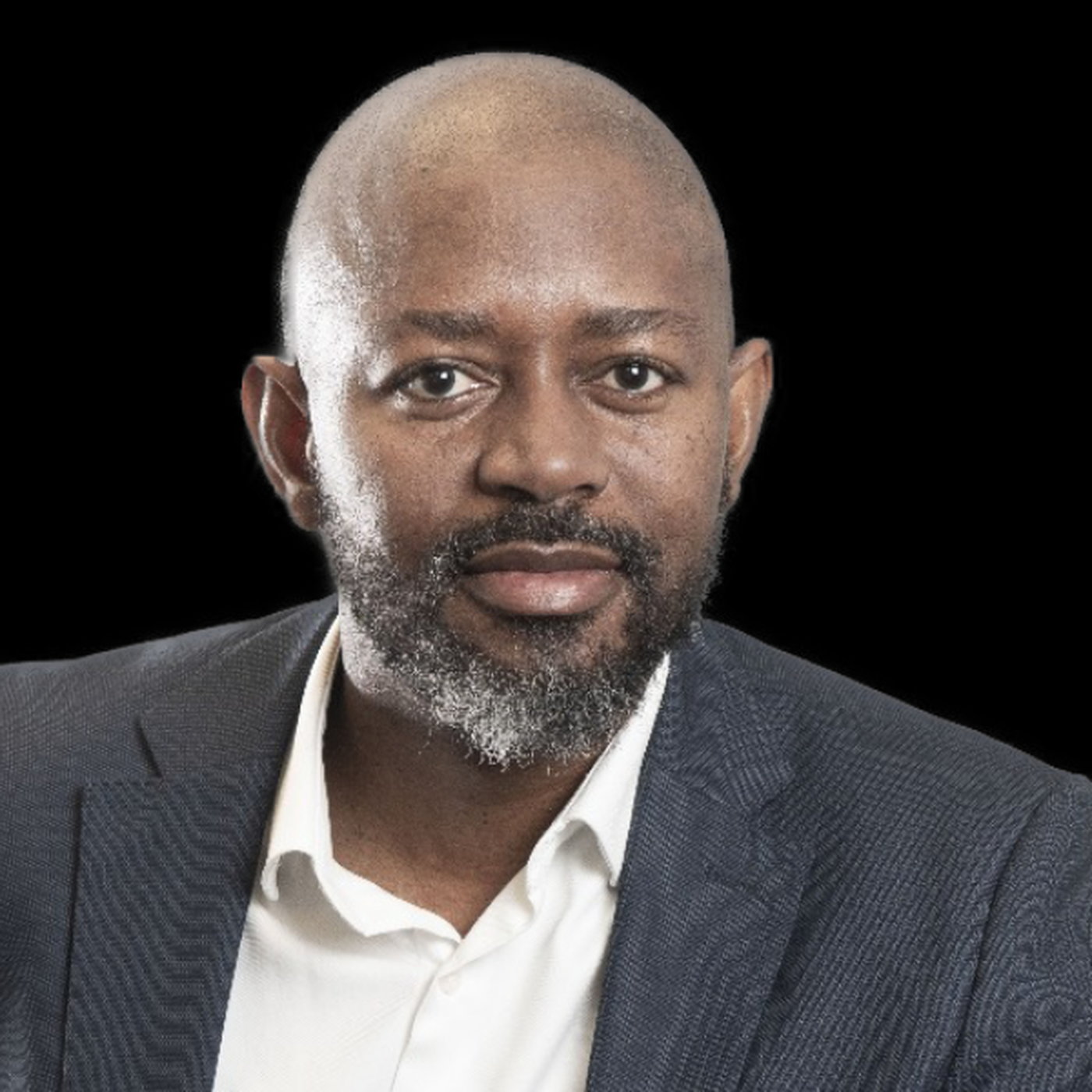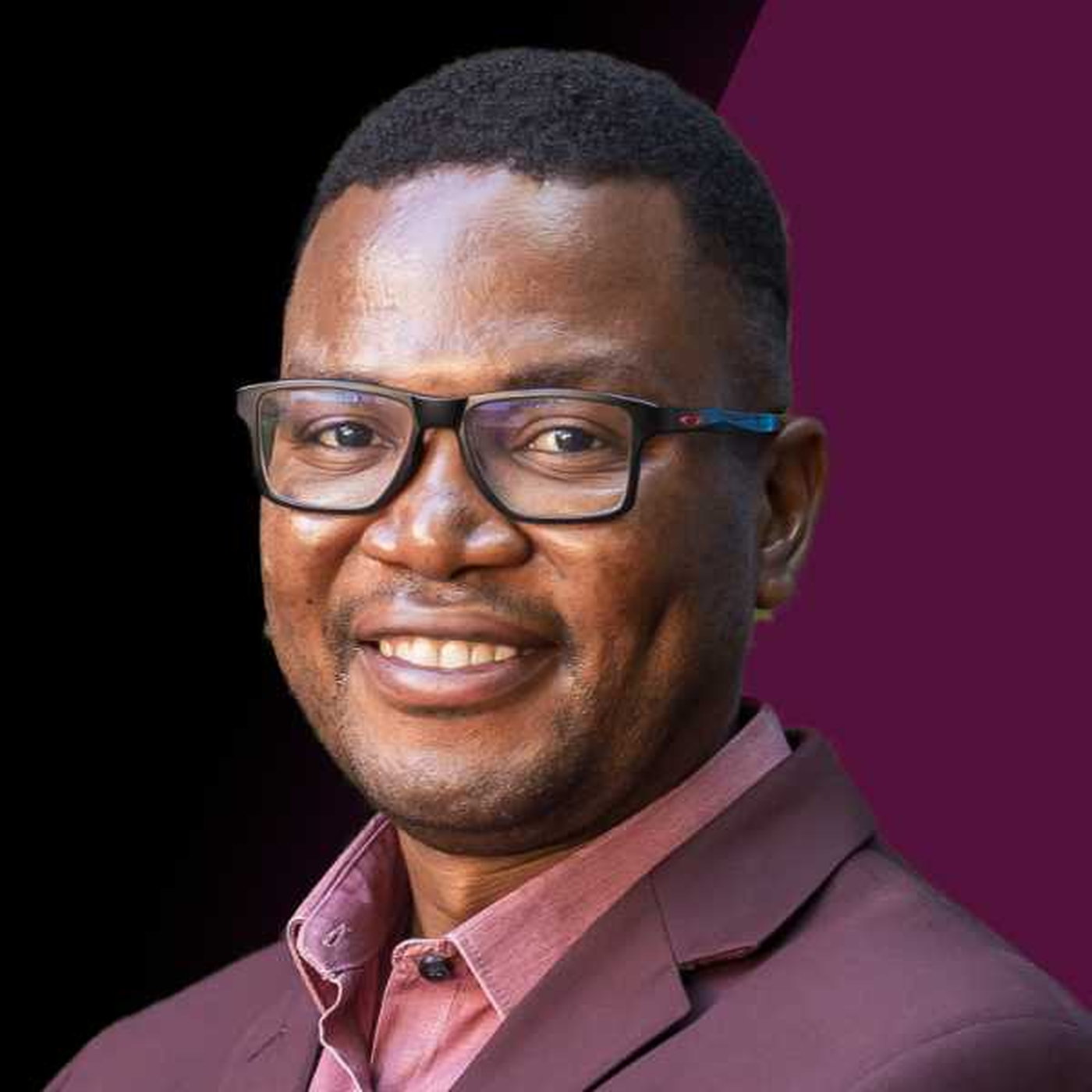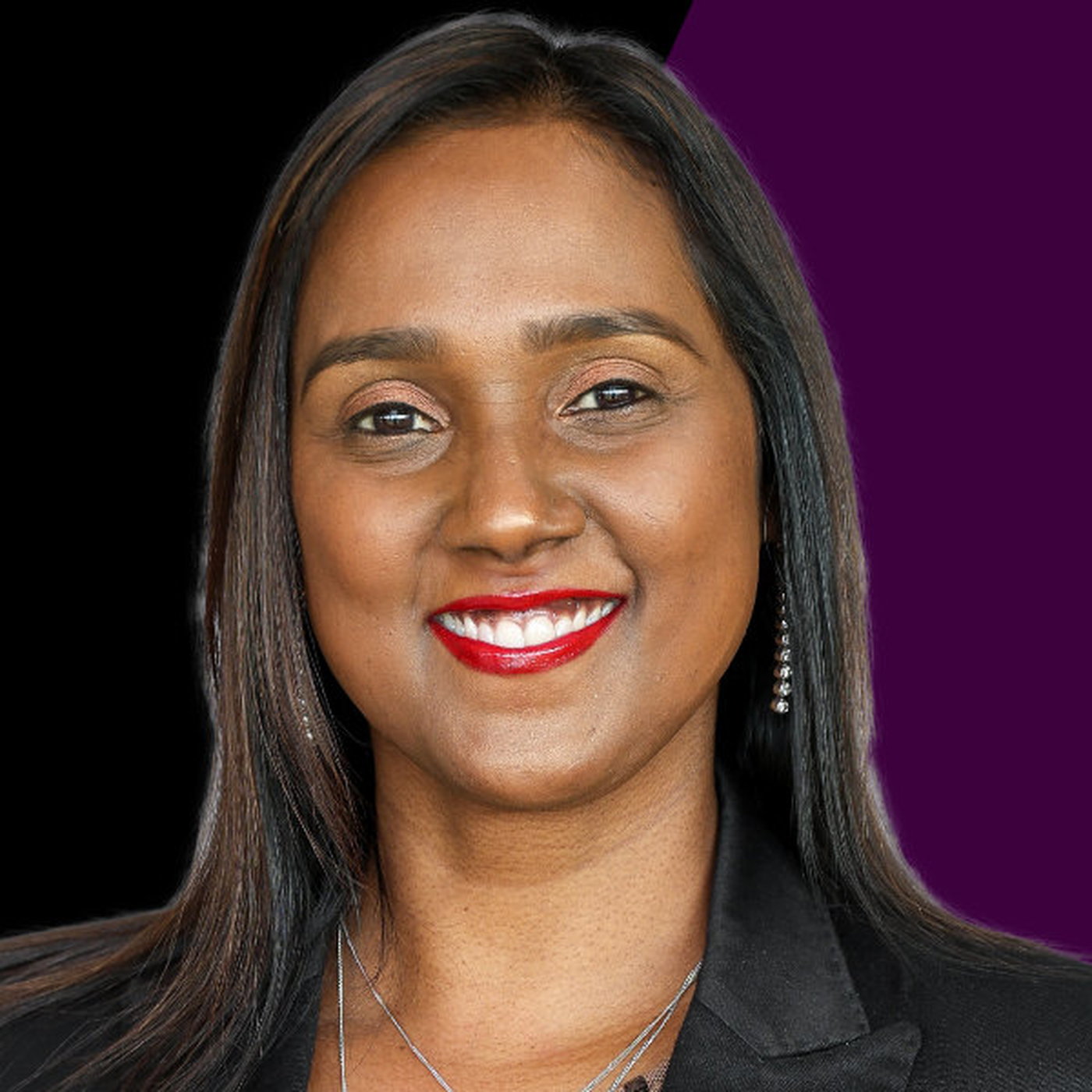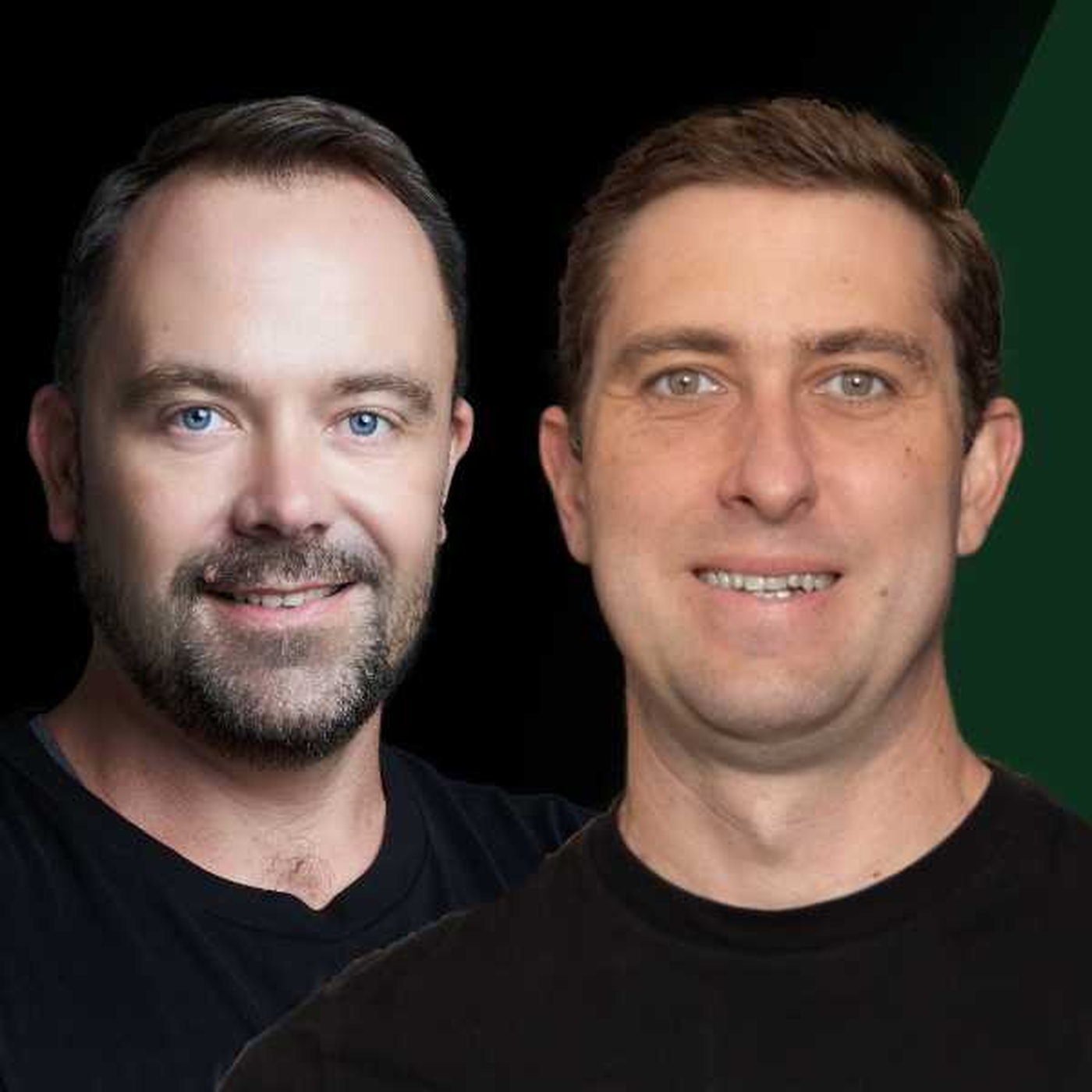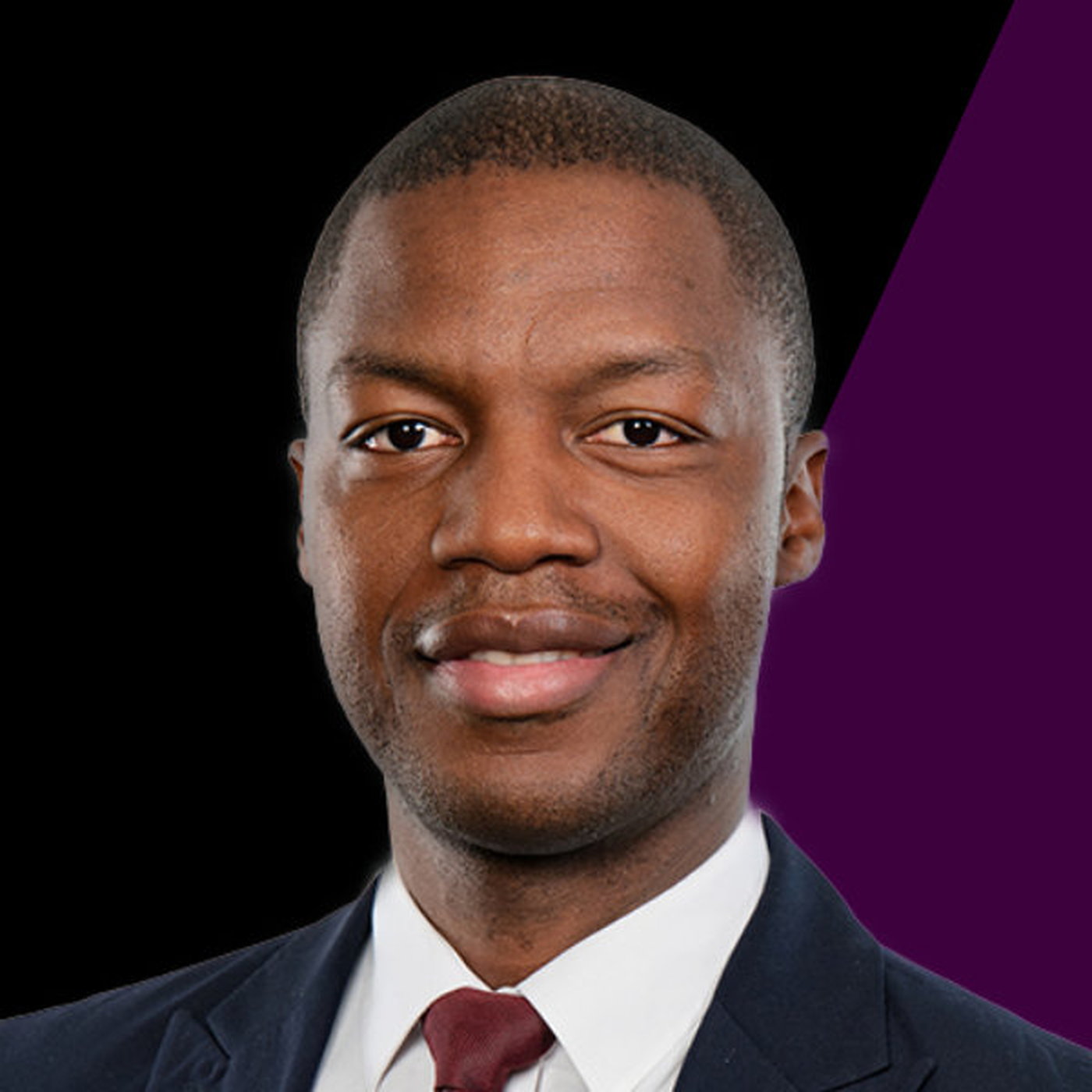Discover TechCentral (main feed)
TechCentral (main feed)

TechCentral (main feed)
Author: TechCentral
Subscribed: 535Played: 2,614Subscribe
Share
© NewsCentral Media
Description
This is the main feed for all of TechCentral's shows and podcasts, including TCS - The TechCentral Show and TCS Impact Series. Never miss anything we produce and publish by subscribing to this feed.
197 Episodes
Reverse
Technology sits at the heart of modern capital markets, and nowhere is that more evident than at the JSE. In the latest episode of Meet the CIO, TechCentral editor Duncan McLeod sits down with Tebalo Tsoaeli, the bourse’s CIO, to unpack how technology underpins Africa’s largest stock exchange – and how it is evolving for a more digital, global and real-time future.
Meet the CIO is brought to you by NTT DATA, where global experience meets local impact.
Tsoaeli has spent his entire career in financial services technology, starting out as an application developer at Rand Merchant Bank before holding senior technology roles at Standard Bank, Investec, Nedbank, FirstRand and Sanlam. He became CIO of the JSE three years ago, bringing deep experience in large-scale, mission-critical systems to one of the most tightly regulated technology environments in the country.
In the conversation, Tsoaeli reflects on his early exposure to computing and how a formal grounding in computer science shaped his career path. While he is clearly a technologist at heart, he explains how his role has evolved beyond pure IT delivery to focus on strategy, resilience, regulatory compliance and enabling market growth.
A major theme of the discussion is the JSE’s technology stack and how it has changed over time. Tsoaeli explains how the exchange now works closely with Amazon Web Services, moving away from a purely on-premises model to leverage cloud infrastructure for scalability, resilience and performance. He also addresses the question many market participants ask: can the cloud really be trusted with mission-critical exchange workloads, especially in a world where outages at global providers can have far-reaching consequences?
Latency and real-time trading are central concerns for any exchange, and Tsoaeli provides insight into how the JSE’s infrastructure supports the full trading lifecycle – from pre-market activity through live trading to post-trade clearing and settlement. He also touches on the exchange’s networking architecture and how it is designed to deliver predictable, low-latency performance for brokers and market participants.
The episode also explores the JSE’s strategic technology partnership with Nasdaq. Tsoaeli explains how this relationship operates at a technology level and what it has delivered so far, including support for market modernisation and international interoperability. Closely linked to this is the modernisation of the JSE’s Broker Dealer Accounting system, a project Tsoaeli describes as critical to improving efficiency, resilience and future-readiness.
Given the highly regulated nature of financial markets, security and compliance are never far from the conversation. Tsoaeli outlines how the JSE balances innovation with stringent regulatory requirements, and what this means for data protection, operational risk and trust in the market.
Looking ahead, the discussion touches on cross-border capital flows, dual listings and the potential role of emerging technologies such as artificial intelligence and machine learning in trading and market operations – along with the risks that come with them.
Finally, Tsoaeli shares his perspective on what success looks like for the JSE’s technology journey over the next three to five years, how he sees the role of the CIO evolving, and – in a lighter moment – his favourite productivity hack. TechCentral
The cloud revolution has challenged businesses of all sizes by changing how IT teams go about implementing projects and managing infrastructure. IT service firms have been doubly challenged, having to sell a new computing paradigm to their clients while also practising what they preach and adopting cloud-first technologies in-house.
Consnet is an IT solutions firm that leveraged the Amazon Web Services distribution model to accelerate its own journey into the cloud, enabling the company to do the same for its customers.
In this episode of TCS+, Dion Kalicharan, MD at Consnet, and Xhenia Rhode, AWS partner development manager at Cloud On Demand, speak about the benefits of leveraging the support structures in the AWS partner network.
Rhode and Kalicharan delve into:
• What the AWS distribution model is and how it benefits partners in the ecosystem;
• Consnet’s 21-year history, the services it provides and how its journey into the cloud began;
• How Consnet being supported by Cloud On Demand gave it the know-how to support its own customers on their cloud adoption journeys;
• The technical and training support that helped guide Consnet to upskill its teams and gain cloud expertise;
• How Cloud On Demand “marked Consnet’s homework” by double-checking the quality and efficiency of its cloud deployments; and
• How Cloud on Demand strategically meets its partners where their needs are.
Don’t miss this informative conversation! TechCentral
TechCentral’s electric car show Watts & Wheels is back for episode 3 of season 1, and while EVs remain the focus, the conversation takes a detour into something far less planet-friendly – and far more jaw-dropping.
Duncan McLeod and co-host William Kelly kick off by drooling over a wild new Toyota performance machine they say is real, street legal and due in 2027. It’s a 4l hybrid V8, rear-wheel drive “hypercar” with supercar proportions and serious numbers: 478kW and a quoted top speed of 320km/h or more. It’s the sort of car that feels entirely out of character for Toyota – and that’s exactly why they can’t stop talking about it.
From there, the conversation swings hard in the other direction: the all-electric Porsche Cayenne, which is shaping up as a huge statement from Stuttgart. The hosts discuss its performance claims – including a 0-100km/h sprint in the mid-2s range – and a range figure north of 600km.
They also debate the realities of EV depreciation and whether buyer anxiety around battery longevity is starting to fade as real-world data shows high-mileage EVs retaining strong battery health.
The episode then turns to Ford CEO Jim Farley’s candid admission that big, expensive EV trucks haven’t delivered as hoped – and why legacy car makers may need to refocus on smaller, more affordable models. The discussion touches on Ford’s partnership with Renault on EVs, and what that could mean for markets like South Africa.
But the meatiest local segment is BYD’s push into South Africa with an aggressive product and charging strategy. William and Duncan unpack their impressions of the BYD Sealion 5 plug-in hybrid – positioned as a direct rival to the Toyota Corolla Cross – and criticise the lack of technical detail shared at its launch. They also discuss BYD’s planned roll-out of a major charging network, including megawatt-scale sites, and what that could mean for shrinking range anxiety.
The episode closes with the show’s “Hot or Not” segment – and one clear takeaway: 2026 is shaping up as a pivotal year for electrification, even as petrolhead fantasies refuse to die.
Watch S1E3 of Watts & Wheels now – and don’t forget to subscribe. TechCentral
Chinese car makers continue their rapid push into the South African market, raising uncomfortable questions for incumbents. With aggressive pricing, fast product cycles and increasingly polished vehicles, the competitive landscape is shifting faster than many expected.
There is also an update on Stellantis’s manufacturing plans and what they could mean for South Africa’s position in global automotive supply chains.
The discussion turns to plug-in hybrids, which are emerging as a key battleground. The Omoda C9 PHEV and Haval H6 GT PHEV are discussed as examples of how Chinese brands are targeting buyers not yet ready to go fully electric.
Duncan and William chat about two new vehicles in South Africa: the Leapmotor C10 (and why William hates the term REEV) and the Alfa Romeo Junior Elettrica (which William is prepared to give a kidney to own).
And then there’s the Toyota GR GT. Duncan explains why this supercar has him seriously questioning his principles – and why some petrol cars are still capable of making rational people do irrational things. TechCentral
South Africa’s automotive industry is in a state of flux. In this episode of the TechCentral Show, BMW Group South Africa CEO Peter van Binsbergen unpacks the challenges – and opportunities – facing a sector under pressure.
He tells TechCentral editor Duncan McLeod about the future of BMW’s Rosslyn manufacturing plant in Pretoria, which was established more than half a century ago, and the urgent need for new government policy to ensure the automotive industrial base in South Africa is future-fit and ready for the shift to electric mobility.
Van Binsbergen also discusses the rise of imported vehicles in the sales mix in South Africa – including the rapid expansion of Chinese brands. China is a market he knows well, having spent three years there with BMW.
In the interview, TechCentral Show viewers will also hear about:
• The state of the local automotive manufacturing industry;
• What South Africa needs to implement in policy reform to ensure the automotive industrial base in South Africa – and why this is urgent;
• How the country must adapt to the global shift to electric mobility;
• The role of BMW’s IT Hub in South Africa;
• BMW’s global EV strategy, and what that means for South African EV buyers; and
• BMW’s Neue Klasse vehicles, which run the company’s next-generation EV platform, and why they are significant to its future.
Don’t miss a fascinating discussion! TechCentral
Cybersecurity is undergoing a quiet but important shift in South African boardrooms: from a defensive cost centre to a strategic business enabler. That was the central theme of a recent TechCentral TCS+ podcast discussion featuring Vodacom Business acting executive head for cloud security Lukhanyo Zahela and KnowBe4 Africa senior vice-president for content strategy Anna Collard.
Once seen primarily as an IT problem, cybersecurity is now recognised as a material business risk with direct financial, operational and reputational consequences. But the discussion made clear that security, done well, can also signal organisational maturity to regulators, investors and partners – and increasingly, become a source of competitive advantage.
Collard likened strong security controls to having “good brakes on a fast car”. Without them, businesses cannot safely deploy emerging technologies such as artificial intelligence or scale digital platforms with confidence. Availability and resilience, she argued, are foundational: “Businesses are in business to stay in business.”
That foundation is under growing pressure. Zahela said South Africa’s threat landscape is evolving rapidly, driven by a criminal ecosystem that is itself adopting automation and AI. Phishing attacks have become far more convincing, while ransomware continues to disrupt cloud migrations, often exploiting misconfigured environments rushed into production.
Defenders, however, are also using AI. Vodacom Business has integrated AI-driven detection and response into its managed security services, reducing the time taken to detect and respond to threats from hours to minutes, or even seconds. Crucially, these systems are adaptive, learning continuously from global threat intelligence rather than relying on static rules.
Despite advances in automation, human behaviour remains central to security outcomes. Many breaches still involve simple mistakes. Collard argued that well-trained employees can act as an extension of the security function, providing judgment and context that AI cannot. The challenge is that organisations must now secure not only people, but also the AI tools and agents they use – all of which can themselves be manipulated.
This requires what Collard described as “digital mindfulness”: a security-aware culture led from the top. Executives must model good behaviour, while organisations adopt zero-trust principles that continuously verify identity and access rights across employees, partners and devices, enforcing least-privilege access by default.
To turn security into an enabler rather than a blocker, it must be embedded from the start. “Security by design” – integrating safeguards into systems, processes and digital initiatives upfront – avoids costly retrofits later and allows innovation to move faster with clearer risk boundaries.
The payoff can be tangible. A strong security posture can reduce cyber-insurance costs, improve business continuity and prevent expensive operational disruptions. More broadly, trust built through resilience and good governance can attract customers, partners and investors.
The key message for business leaders, the speakers agreed, is to stop treating security as reactive. The more powerful question is no longer, “How do we protect what we have?”, but rather, “How does security enable us to do what we couldn’t do before?”
Don’t miss this important conversation! TechCentral
TechCentral’s motoring show, Watts & Wheels, is officially back, with the first full episode of season 1 widening the lens beyond new cars to look at the forces reshaping South Africa’s automotive industry.
The first episode of season 1 – you can catch our “season 0” episodes here – opens with a sharp focus on South African Auto Week, where the pressure on local vehicle manufacturers dominated discussions.
Original equipment manufacturers are facing a tough balancing act as imports rise while local assembly plants wrestle with costs, scale and uncertainty.
From policy to products, the show then shifts gears to tyre maker Bridgestone, which has launched new tyre offerings for the South African market. In an interview, Jacques Rikhotso, CEO of Bridgestone South Africa, unpacks how changing vehicle technologies – including heavier EVs – are influencing tyre design, durability and safety.
Chinese brands also feature prominently. A dramatic crash test involving the Chery Tiggo 9 Pro highlights the rapid strides Chinese manufacturers are making in safety engineering. Meanwhile, BYD continues to push the boundaries of EV infrastructure, announcing plans for a 1MW ultra-fast charging network, championed by BYD executive Stella Li.
Adventure meets electrification with a discussion on Volvo EX30 Cross Country, which recently tackled the iconic Sani Pass – a symbolic moment for EV capability in rugged African conditions.
On the new-car front, the team runs through arrivals and upcoming launches including the BYD Dolphin Surf and the forthcoming Volvo EX60.
The review spotlight falls on the Lexus GX550, described as the “anti-EV”: a traditional, petrol-powered luxury off-roader that doubles down on ruggedness rather than electrification.
Rounding out the episode is an interview with Andrew Kirby, CEO of Toyota South Africa, and we speculate on the electric vehicle models Toyota is likely to introduce into the local market in 2026. TechCentral
Africa’s digital transformation continues to accelerate, driven by growing cloud adoption and rising interest in artificial intelligence.
Yet many organisations still face challenges in converting these ambitions into measurable business outcomes. According to Cliff de Wit, group chief innovation officer at Accelera Digital Group, the success of AI-driven initiatives depends as much on culture and governance as it does on technology.
In this episode of TechCentral’s TCS+ podcast, De Wit outlines the practical steps leaders can take to reduce organisational friction, strengthen data foundations and enable cloud-led innovation at scale.
“Cloud is no longer an IT decision. It is the foundation on which every modern AI strategy is built,” says De Wit. And technical readiness alone is not enough. “The biggest barrier is not the tech, it’s whether the organisation is prepared to manage change at the pace AI requires.”
In this episode, De Wit discusses:
• The concept of organisational drag and how it affects AI progress;
● Approaches to strengthening culture and governance within digital programmes;
● The role of the C-suite in accelerating cloud and AI adoption while demonstrating clear return on investment;
● What an AI-ready data foundation looks like and why it is essential;
● How strong data management practices unlock new sources of business value; and
● Why African organisations are increasingly well positioned to advance rapidly through cloud-first strategies.
The discussion provides practical guidance for business and technology leaders seeking a clearer understanding of how cloud, data and culture intersect to enable enterprise-wide AI transformation. Don’t miss it! TechCentral
Newly minted small businesses often struggle to establish themselves as reliable service providers among their more established competitors. To help cloud-focused business thrive, Amazon Web Services has created the AWS distribution model to support small businesses and help them grow.
In this episode of TCS+, Cloud on Demand’s Xenia Rhode and Developmenthub’s Odwa Ndyaluvane explain how the AWS distribution model benefits partners in the same ecosystem.
In this episode, Rhode and Ndyavulane discuss:
• An overview of the AWS distribution model and its ecosystem partners;
• Who Developmenthub is and how the company started;
• The support Cloud on Demand, an AWS select partner, provides to Developmenthub;
• The business outcomes that Developmenthub has achieved through the partnership;
• The business development support available within the partner ecosystem;
• The new market access opportunities Cloud on Demand was able to avail to Developmenthub; and
• New revenue streams that Developmenthub was able to tap into because of the Cloud on Demand partnership.
Don’t miss the discussion. TechCentral
South Africa’s big three telecommunications operators have all reported numbers in recent weeks, and the theme is clear: competition in prepaid has intensified sharply.
Telkom’s resurgence has put pressure on both MTN and Vodacom, with MTN acknowledging it has “discernibly” lost prepaid market share.
This is one of the topics covered in this wide-ranging and exclusive TechCentral Show interview with MTN Group CEO Ralph Mupita, who sat down earlier this week with TechCentral editor Duncan McLeod to discuss this and other major topics, including:
• The impact of online gambling on the telecoms sector;
• The need for further consolidation in South African telecoms, and why Mupita won’t completely rule out a deal with Telkom, provided the “stars align”;
• Vodacom’s acquisition of a co-controlling stake in Vumatel parent Maziv and how MTN will respond;
• The impact of low-Earth orbit satellite connectivity on the telecoms industry and how MTN plans to work with companies like SpaceX/Starlink and Amazon Leo – and whether he sees them as competitors or partners (or both);
• The spectacular turnaround in Nigeria and whether it’s durable;
• The future of MTN’s involvement in Iran, and the lessons learnt from the group’s exit from other Middle Eastern markets;
• Plans to shift MTN Group’s focus to East Africa in the coming years; and
• Why he’s fascinated by the impact that AI could have on telecoms in Africa.
Don’t miss a great discussion on the future of MTN and telecoms in Africa! TechCentral
Returning to the TechCentral Show is ICT regulatory expert Dominic Cull, founder of Ellipsis and regulatory advisor to the Internet Service Providers’ Association. Cull recently attended communications minister Solly Malatsi’s policy colloquium in Pretoria – the first under a non-ANC communications minister.
Cull says there is a discernibly different tone from Malatsi compared to his predecessors: more openness, more willingness to engage stakeholders and a stronger focus on evidence-based policymaking. However, while the intent is encouraging, South Africa’s ICT policy environment remains inconsistent, slow and fragmented.
In the podcast, Cull discusses:
• Malatsi’s policy colloquium and what came out of it
• The state of ICT policy and regulation in South Africa
• The biggest policy bottlenecks holding back growth in the ICT sector
• Why government doesn’t fully grasp the economic impact of digital infrastructure
• The latest on the next spectrum auction
• The EU’s decision to hand much of the 6GHz band to mobile operators – and why South Africa shouldn’t blindly copy it
• What’s needed to fix the Rica legislation
• Why Starlink isn’t coming to South Africa anytime soon
Cull also shares the top priority areas he’d focus on in 2026 if he was minister of communications.
It’s a great discussion – don’t miss it! TechCentral
Welcome to season 2 of Meet the CIO, TechCentral’s podcast series that dives into the minds of South Africa’s top technology leaders. Meet the CIO is brought to you by NTT DATA – where global experience meets local impact.
After a highly successful first season featuring CIOs from across the corporate landscape, we’re kicking off season 2 with a conversation with Khaya Mbanga, chief information and digital officer at BDO South Africa, where he also heads the firm’s growing BDO Digital division.
BDO is one of the world’s largest professional services firms, specialising in audit, tax and advisory. Headquartered in Belgium, its name comes from the three founding firms – Binder, Dijker and Otte – that merged to form the organisation.
In this wide-ranging episode, Mbanga reflects on his career journey through consulting, FMCG and mining; how he first got into technology; and the evolution of the CIO role into one that now straddles digital strategy, cybersecurity, AI and organisational change.
He also unpacks his passion for artificial intelligence, including his involvement in the IITPSA Special Interest Group on AI and Robotics, and offers his perspective on how AI will reshape auditing, tax and broader business functions in South Africa. From managing hallucinations in large language models to rethinking talent pipelines, Mbanga shares candid insights into both the opportunities and risks ahead.
Topics covered include:
• What it means to be the CIDO of BDO South Africa
• Career background across consulting, FMCG and mining
• His first computer and how he got into technology
• Robotic process automation in the mining sector
• How AI will transform auditing and tax
• Dealing with the risk of AI hallucinations in data-sensitive environments
• The broader impact of AI on South African business
• Technology talent shortages and what skills CIOs need today
• His favourite productivity hacks and tools
Don’t miss this great opener to the new season of Meet the CIO. If you missed any of the interviews from season 1, you can find them all on TechCentral. TechCentral
South Africa’s automotive industry is in a state of flux. In this episode of the TechCentral Show, BMW Group South Africa CEO Peter van Binsbergen unpacks the challenges – and opportunities – facing a sector under pressure.
He tells TechCentral editor Duncan McLeod about the future of BMW’s Rosslyn manufacturing plant in Pretoria, which was established more than half a century ago, and the urgent need for new government policy to ensure the automotive industrial base in South Africa is future-fit and ready for the shift to electric mobility.
Van Binsbergen also discusses the rise of imported vehicles in the sales mix in South Africa – including the rapid expansion of Chinese brands. China is a market he knows well, having spent three years there with BMW.
In the interview, TechCentral Show viewers will also hear about:
• The state of the local automotive manufacturing industry;
• What South Africa needs to implement in policy reform to ensure the automotive industrial base in South Africa – and why this is urgent;
• How the country must adapt to the global shift to electric mobility;
• The role of BMW’s IT Hub in South Africa;
• BMW’s global EV strategy, and what that means for South African EV buyers; and
• BMW’s Neue Klasse vehicles, which run the company’s next-generation EV platform, and why they are significant to its future.
Don’t miss a fascinating discussion! TechCentral
Altron earlier this month announced that it has deployed an "AI factory" in one of Teraco’s new Johannesburg data centres. Powered by Nvidia AI infrastructure and software, the factory is has already gone live with half a dozen customers.
In this episode of the TechCentral Show, Altron Group chief technology officer Bongani Andy Mabaso explains the rationale for the investment, what building the factory entailed and what the anchor tenants are using the platform to do.
Mabaso tells TechCentral editor Duncan McLeod:
• What an AI factory is exactly and why Altron has decided to build one;
• What’s involved in deploying AI infrastructure, especially from a power and cooling perspective – and why Altron decided to locate its AI factory at Teraco;
• What companies like Lelapa AI, MathU and Dataviue are using the Altron AI Factory to do;
• Why Altron partnered with Asus and HPE on the project;
• How the infrastructure can be used; and
• The advantages of hosting an AI factory in South Africa, as opposed to an offshore data centre – it’s not only about better network latency.
Don’t miss the conversation! TechCentral
Vodacom Business recently appointed an “extraordinary business advisory board”, a strategic initiative designed to strengthen its enterprise expertise and support organisations on their digital transformation journeys.
To unpack the decision to appoint an advisory board, TechCentral is joined in this episode of TCS+ by Videsha Proothveerajh, director of Vodacom Business, who explains that it’s all part of Vodacom’s shift from being a traditional telecommunications provider to a “techco”, or technology company.
In this episodes Proothveerajh chats about:
• The advisory board, who it is comprised of and the purpose it is meant to serve in the business services landscape in South Africa;
• The fact that the pace of technology change has accelerated coming out of Covid and how this influenced Vodacom Business’s approach to digital transformation;
• How the new advisory board influences Vodacom’s approach to guiding enterprise clients on digital transformation;
• The role the latest telecoms technologies, including 5G and the internet of things, are playing in the business-to-business environment in which Vodacom Business operates;
• How Vodacom Business tailors its digital transformation solutions to meet the needs of different industries or enterprise segments, or indeed of customers that might not be as advanced as others in their application of technology;
• The most common obstacles South African enterprises face when it comes to technology adoption and digital transformation; and
• The emerging trends and technologies that will have the biggest impact on the business market in the next few years.
Don’t miss an informative discussion! TechCentral
The invention of the silicon transistor was fundamental to the success of the digital age, driving the core of the modern-day digital economy.
The rise of generative AI has put hardware at the epicentre of the next wave of economic growth, with chip makers such as Nvidia and AMD reaching record valuations as demand for advanced chips far outstrips supply.
But as AI data centres expand, so, too, does their consumption of resources, with their demand for water and electricity rising exponentially.
FinalSpark is a Swiss biocomputing company exploring more efficient ways of computing – and it’s turned to human neurons as a potential solution.
In this episode of the TechCentral Show, Fred Jordan, co-founder and co-CEO of FinalSpark, gives insight into “wetware” (in effect, living hardware) and what it means for the future of computing.
Jordan delves into:
• What inspired him turn to living neurons as a means of processing;
• Parallels between his training as a signal processing engineer and his work with living neurons;
• Why FinalSpark uses human neurons and not any other like those from a cat on an octopus;
• How skin cells are used to “create” the neurons;
• How the neurons are fed, stored and kept alive;
• How long the neurons live for and the sort of computations FinalSpark has made them perform; and
• His views on the future of computing.
Don’t miss this intriguing discussion! TechCentral
In today’s hyperconnected society, mobile connectivity is key to running a successful business, helping keep employees connected to each other, to organisational resources and to customers.
To manage communications effectively, businesses need to have a clear view of the entire Sim estate across the organisation. Monitoring usage and having the control needed to provide (or restrict) resources such as voice minutes and data quickly and easily are critical to managing costs effectively.
MSB Micro Systems is a company specialising in managed network connectivity for corporate entities. In this episode of TechCentral’s TCS+, MSB Microsystems founder and CEO Danny Stemmet talks about the ins and outs of Sim management.
Stemmet delves into:
• MSB Micro’s history and how the company changed from being a software development house to a services company;
• How the rise of hybrid work environments and remote teams have affected demand for Sim management services, especially among mobile workforces;
• How MSB Micro Systems supports Sims that perform machine-to-machine communications and other internet-of-things functions;
• How MSB’s network-agnostic approach provides flexibility its resellers and, by extension, their clients;
• How MSB’s pricing model supports businesses at every stage growth, helping them scale appropriately when they need to;
• The key benefits for a company that chooses to use a managed connectivity service rather than managing their mobile estate directly with an operator; and
• Why MSB Micro is changing its business model from being a managed service provider to a platform business.
Don’t miss this informative conversation. TechCentral
Cryptocurrencies are increasingly moving beyond being seen as an investment asset as users find more real-world uses in everyday contexts. It appears that crypto is becoming more like cash – with users prepared to use it as the point of sale.
Crypto payments specialist MoneyBadger recently signed a deal with fintech Scan to Pay allowing crypto wallet users pay at more than 650 000 stores nationwide.
In this episode of the TechCentral Show, MoneyBadger CEO Carel van Wyk and Luno country manager for South Africa Christo de Wit tell TechCentral’s Nathi Ndlovu about what the partnership means for crypto platforms, their users and the broader economy.
Van Wyk and De Wit delve into:
• The mindset shift that happens when users move from being crypto investors to day-to-day users of digital currencies;
• How crypto payments allow for immediate settlement in rands and what that means for merchants and users;
• How merchants benefit by supporting crypto payments at their stores;
• Why a crypto investor might want to consider using it to make payments;
• The tax implications that must be considered before investing in or using crypto for payments;
• The role cryptocurrencies play in promoting financial inclusion; and
• The role cryptocurrencies will play as the Reserve Bank modernises the National Payment System.
Don’t miss an interesting discussion! TechCentral
When most people think of Amazon Web Services, they automatically assume they should go directly to AWS. However, for the diverse ecosystem of AWS partners – including managed service providers and independent software vendors – the real secret to achieving significant growth often lies in leveraging the distributor model.
Consider this analogy: if AWS is a powerful cloud engine, then the reseller acts as the skilled driver. But who manages the complexities of operating the vehicle, such as maintenance, refuelling, training and necessary pit stops? That administrative heavy lifting falls to the distributor.
In this episode of TCS+, Senzo Mbhele, MD at Cloud On Demand, explains the AWS distribution model and its advantages.
Mbhele discusses:
• The main business challenges that the AWS distribution model addresses;
• How distributors create financial value and improve return on investment for others in the ecosystem, including end customers;
• The support distribution partners provide to internal teams, enabling them to achieve more without the need to hire additional staff;
• The expertise distributors offer to help chief information officers and chief technology officers manage risk, security and governance throughout their cloud journey;
• Common misconceptions that may cause executives to hesitate before partnering with a distributor; and
• Indicators that suggest it might be time for a business to consider the services of a distribution partner, along with the benefits this can bring.
Don’t miss this engaging conversation! TechCentral
E-commerce will soon reach an important milestone in South Africa: by January, according to World Wide Worx research, online shopping will top 10% of total retail sales for the first time. The move to 15% and then to 20% will come much quicker.
That’s the view of Frederik Zietsman, CEO of Naspers-owned Takealot Group – South Africa’s largest online retailer – who was speaking to TechCentral editor Duncan McLeod on the TechCentral Show.
In the interview, Zietsman unpacks what’s driving the rapid adoption of online shopping in South Africa – Covid-19 was a key trigger – and what the future holds as international e-commerce giants step up their investments in the country.
He also discusses:
• How the competitive dynamics of the market have changed in recent years;
• The impact of the entry of international giants such as Amazon and Walmart and how this will reshape the market in the coming years;
• The decision to expand subsidiary Mr D’s focus from fast food to include new product categories;
• The township opportunity and how Takealot is working to crack that market;
• Takealot’s plans to move to electric vehicles in its logistics fleet, including a look at what’s needed to introduce electric motorbikes at scale;
• The challenge of crime in the logistics chain and what’s being done to fight it;
• Why Takealot is getting into the home loans business; and
• What’s going to drive the company’s growth in the next few years.
Don’t miss a fascinating conversation! TechCentral


